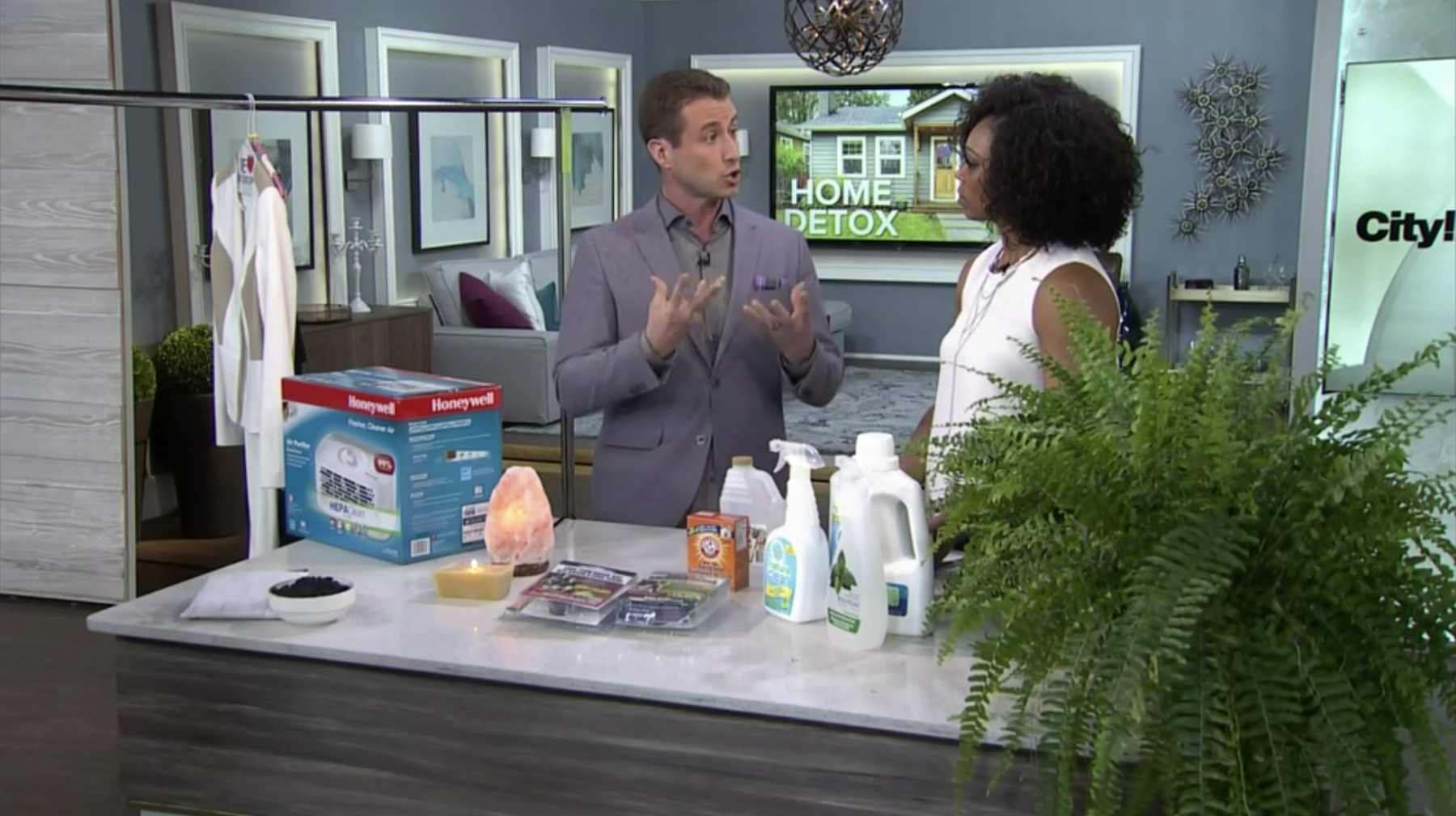In this cityline segment, I talk about the toxins in your home and shares 8 natural ways to reduce toxins with salt lamps, plants, and activated charcoal
When we think of air pollution we tend to think of thick gray smog, diesel trucks and spewing factories. However, it is much more common to have high indoor air pollution that has a greater long term health impact than most of us understand. In celebration of earth day and to help us better manage toxins in our home, health expert, Bryce Wylde shares 7 simple solutions to reduce home toxins.
Activated charcoal
- Charcoal has long been used in our filters to purify water and can have the same toxin-removing effects on air. The porous structure of the charcoal helps remove bacteria, harmful pollutants and allergens from the air and absorbs moisture, preventing mold and mildew by trapping the impurities inside each pore.
Ionizers
- Himalayan rock salt
When the salt is heated by a small bulb, it releases negative ions which are known to neutralize pollutants in the air. They are sold in many different sizes and shapes. - Bees wax
Unlike regular paraffin candles derived from petroleum – burn with almost no smoke or scent. - Electrical HEPA’s with ionization all release natural negative ions which clean the air and improve your mood!
These items are especially beneficial to those with asthma or allergies by eliminating common allergens like dust and dander.
Off-gas your dry cleaning
- Dry cleaning and the use of perchloroethylene or ‘perc’ has many known health effects such as skin rashes, dizziness, headaches, confusion, sleepiness, problems sleeping and walking. Perc off-gasses from our dry cleaning, is a hormone disruptor and has been related to fertility issues, spontaneous abortions and menstrual irregularities. Perc has also been related to brain, kidney and liver damage.
- Since dry cleaning solvents continue to off gas from the clothes that were treated with the chemical, it is best to take some precautionary measures.
- Let your dry-cleaning off-gas in the garage, on the patio on a clear day, or at the very least keep your bedroom window open when you have just returned from the dry cleaners.
The best plants to have around the house to clean your air
- We’ve known for ages that plants literally help you breath better by absorbing carbon dioxide and releasing clean oxygen. But certain plants are better at eliminating significant amounts of chemicals often found in close quarters that off-gas from our common household products including: benzene, formaldehyde and trichloroethylene.
- The top workhorse plants for air purification are:
- Golden Pothos
- Peace Lily
- Boston Fern
- Snake Plant
- English Ivy
- Dracaena
- Bamboo Palm
- Dragon Tree
- Lady Palm
- Spider Plant
By having at least one plant per 100 square feet of home for efficient air cleaning to be accomplished.
Mould detection
- Health effects from exposure to mold can vary greatly depending on the person and the amount and type of mold present.
- Regardless of the type of mold, it should be treated as potentially a health hazard and should be removed from homes and workplaces.
- If you see or suspect mould in your home, contact a lab in your area who will send a professional to take a sample.
Detecting radon gas in your home
- Radon is a radioactive gas released from the normal decay of the elements uranium, thorium, and radium in rocks and soil. It is an invisible, odorless, tasteless gas that seeps up through the ground and diffuses into the air. Radon can also dissolve into ground water and can be released into the air when the water is used. Radon gas usually exists at very low levels outdoors. However, in homes without adequate ventilation, especially basements, radon can accumulate to levels that substantially increase the risk of lung cancer! (Second leading cause next to smoking!)
- So that people can implement an effective radon monitoring program, the environmental protection agency and Health Canada have established guidelines for North Americans.
Household cleaners
- No need to get into any great detail about how many conventional cleaners have powerful toxins in them! But the swap out is baking soda and vinegar. These two natural chemical free solutions can take care of just about any household job!
Posted in Biohacks, Home Health, TV & Episodes
